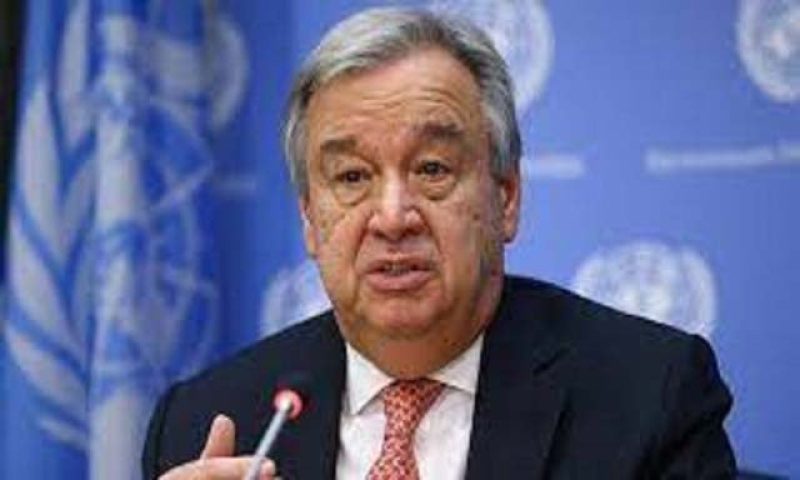- Stock market: DSE fails to sustain early gains, CSE extends rally |
- Illegal arms, disinformation pose major challenges to BD polls: Officials |
- BNP senses ‘dangerous conspiracy’ against democratic transition |
- CEC Vows Credible Election to End Stigma |
- High-level meeting reviews country’s economic progress |
Israeli rejection of two-state solution 'unacceptable': UN chief

(BSS/AFP) - Israel's rejection of the idea of a two-state solution with the Palestinians is unacceptable and could prolong the war in Gaza, UN Secretary General Antonio Guterres said Tuesday.
"Last week's clear and repeated rejection of the two-state solution at the highest levels of the Israeli government is unacceptable," Guterres said in a speech to the Security Council.
"This refusal, and the denial of the right to statehood to the Palestinian people, would indefinitely prolong a conflict that has become a major threat to global peace and security," Guterres told the meeting.
Such an outcome "would exacerbate polarization and embolden extremists everywhere," he added.
Guterres called for the universal recognition of the "right of the Palestinian people to build their own fully independent state."
Israeli Prime Minister Benjamin Netanyahu has drawn global condemnation in recent days -- and defied the United States, which provides Israel with billions of dollars in military aid -- by rejecting calls for a Palestinian state.
That rejection has come as Israel pounds Hamas in Gaza, where the death toll reached nearly 25,500 Tuesday, with around 70 percent of the dead women and children, according to the territory's health ministry.
The offensive began in response to the unprecedented attack by Hamas fighters on October 7 that resulted in the deaths of about 1,140 people, mostly civilians, according to an AFP tally based on official Israeli figures.
The group also seized about 250 hostages during the attack, with around 132 still remaining in Gaza.
- Israel at odds with allies -
Netanyahu's office last week said Israel "must retain security control over Gaza," even after "Hamas is destroyed," days after the prime minister had also rejected Palestinian sovereignty over the occupied West Bank.
He proclaimed Israel's need to have "security control over all the territory west of the (River) Jordan." Israel's allies have criticized its comments, though few seem prepared to seriously walk back support.
"We must have a Palestinian state," said French Foreign Minister Stephane Sejourne, chairing Tuesday's Security Council meeting.
And even as Netanyahu told US President Joe Biden directly that he rejects Palestinian sovereignty in the Gaza Strip, Washington has maintained that it can still work with Israel on the issue.
"It's President Biden's firm conviction that two states, with Israeli security guaranteed, are the only path to durable peace," Uzra Zeya, US undersecretary for human rights, said Tuesday.
Calling for a ceasefire, Palestinian Authority Foreign Minister Riyad Al Maliki said the "disregard for Palestinian life" should no longer be tolerated, while Russian top diplomat Sergey Lavrov said the United States has blocked "all efforts and initiatives geared towards ending the bloodshed."
Israeli Ambassador Gilad Erdan said while "it is important" to provide aid to Gaza, Iran is "the root of the dire threat to the Middle East and the world."
Guterres demanded that "Israel's occupation must end."
"The entire population of Gaza is enduring destruction at a scale and speed without parallel in recent history," he said, also calling for the establishment of new humanitarian crossing points and the resumption of aid operations at the Israel port of Ashdod.
International organizations have warned that after three and a half months of relentless airstrikes and a ground invasion, the tiny land strip's two million occupants face an acute humanitarian crisis, including the threat of famine and disease.

